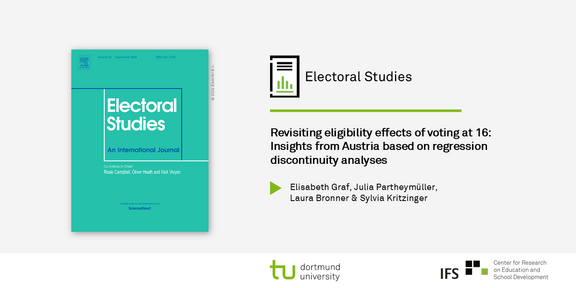Article in Electoral Studies published
- News
- Publications

The notion of habitual voting – that voting in one election makes voting in subsequent elections more likely – has received empirical support from several regression discontinuity studies which use age-based eligibility cut-offs, including one which extends these findings to 16-year-old voters (Bronner and Ifkovits, 2019). The article “Revisiting eligibility effects of voting at 16: Insights from Austria based on regression discontinuity analyses” by Elisabeth Graf, Julia Partheymüller, Laura Bronner and Sylvia Kritzinger revisits the evidence on eligibility effects in Austria. The researchers did so by replicating, in a first step, the initial study on short-term eligibility effects of voting at 16. Then, in a second step, they extended the analysis using new datasets that include additional respondents and cover further elections and outcomes. In the replication study, they uncovered that the previous results, which suggested a substantially large positive eligibility effect on intention to turn out and ideological extremity during subsequent elections, were actually due to a coding error. When extending the analysis with new data and outcomes (turnout, knowledge, efficacy), this article still does not find sufficient evidence that eligibility affects turnout or other political variables in the short term, the long term, or for new cohorts. The researchers concluded by a discussion of the implication of those insights and suggest avenues for future research.





